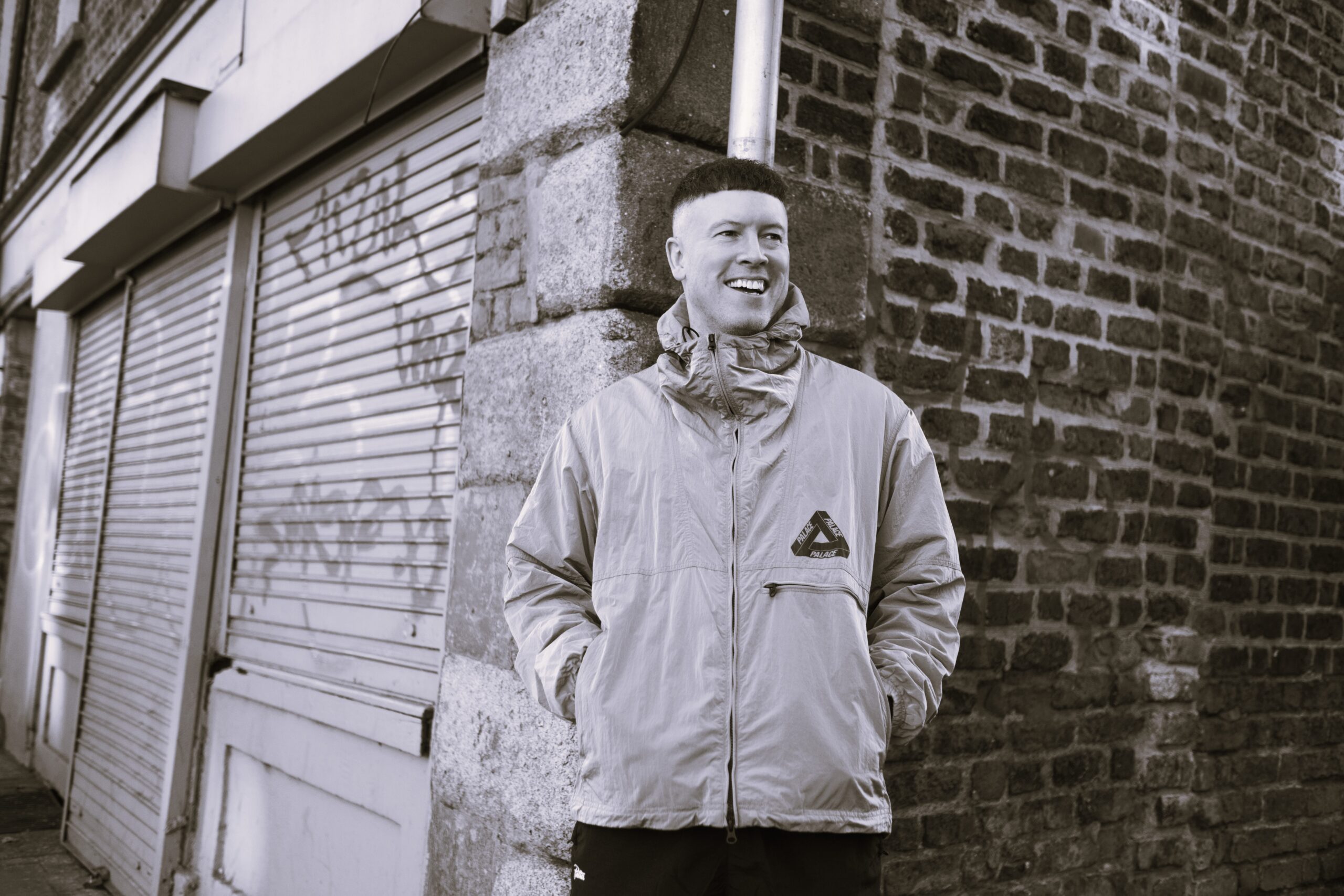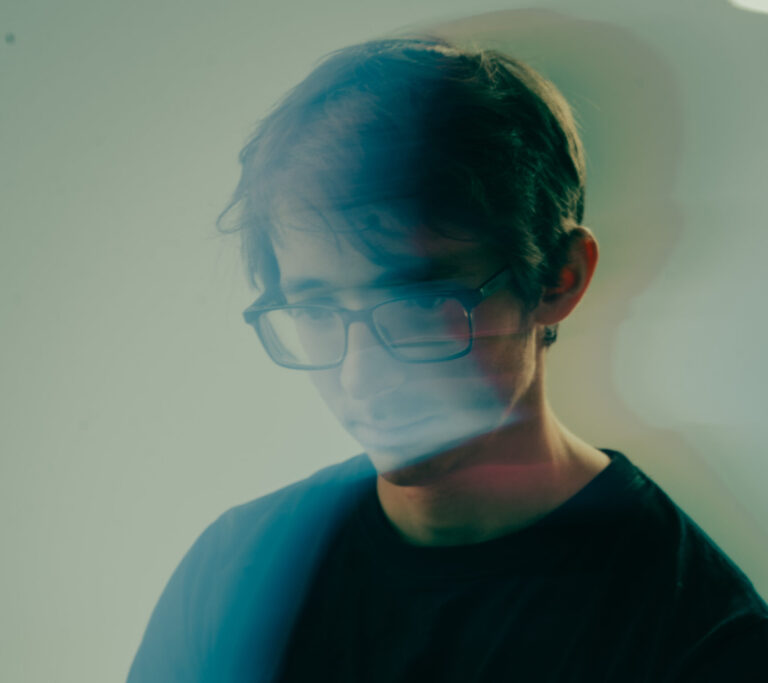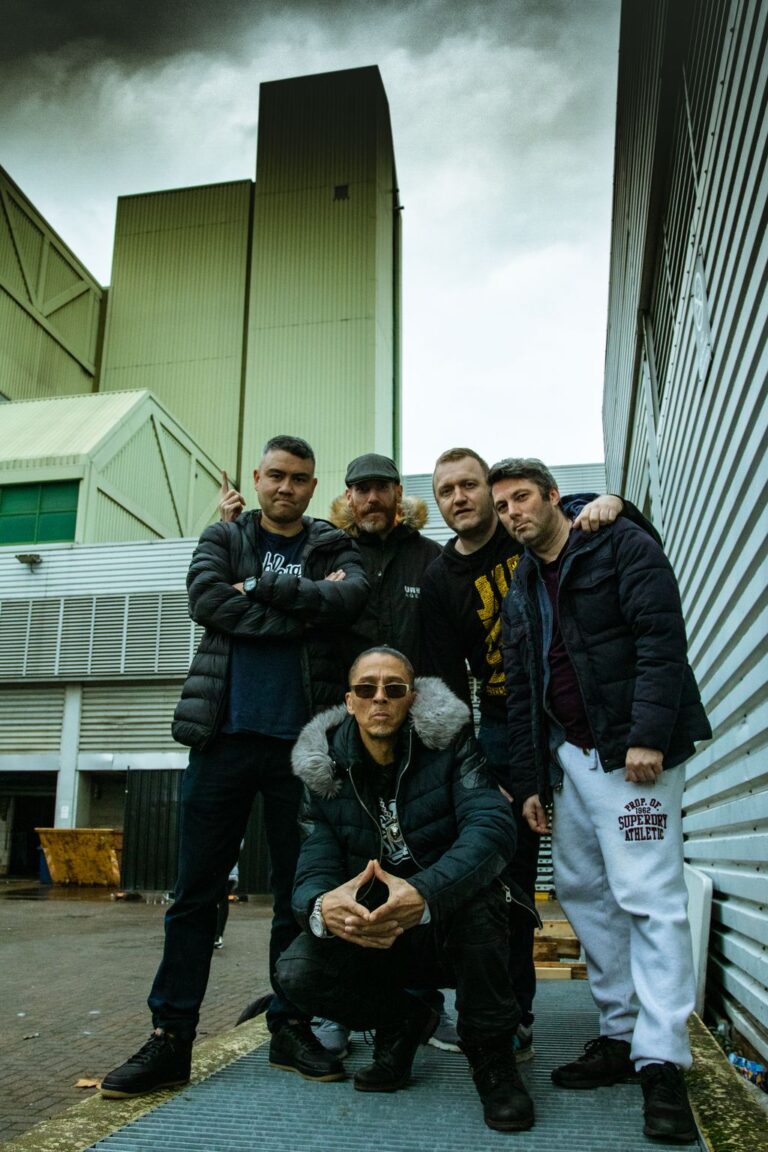Adam Fogarty, also known as MathMan, has been at the forefront of pushing UK Rave sounds in Dublin for years. A versatile producer known for his work in breakbeat, UK garage, and jungle, MathMan recently released his album SK83 (The Prequel) on vinyl via his own imprint Weapon Of Choice.
The album itself is stacked with a wide variety of genres and features including Ayah Marar and Blak Diamon. SK83 (The Prequel) is not just an album of club singles, but a concept piece that takes a nostalgic journey through the sounds of Dublin in the year 1998 – delivered with contemporary finesse. With his sights set on nurturing the Irish bass music scene and releasing more compelling music, MathMan is a unique producer due to his Dublin upbringing and his continued commitment to producing art.
We had the pleasure of sitting down with him to discuss the intricacies of his new album, the challenges of releasing music independently, and the state of bass music in Ireland.
Before we delve into it. What does SK83 (The Prequel) mean? And how do I say it? Is it Skate Three?
I never thought of pronouncing it like that. It’s Pronounced S.K.83. How it’s spelt out. In terms of what it means, as much as I’d love to tell you, I won’t give it away exactly. It’s very personal, but I like the fact that it can be kept as a mystery.
Will we ever find out what it means in the future?
Possibly. I’m not against it. If people really want to know I can let them know, but for now there’s no need. The meaning does unfold throughout the wider meaning of the entire album. This is only the prequel so it’s meaning hasn’t been revealed yet. People can attach their own meaning to it over time.
Sounds good. So, in a time of algorithms, singles coming out every week from artists and almost 100 thousand tracks uploaded to Spotify a day, why did you decide to go for an album?
For two reasons. I’m from a generation where albums mattered. I care about a body of work from an artist. Taking a journey through an album; or four or five albums from an artist, allows you to paint a wider and larger picture of where you’re at, rather than you can with a bunch of singles. Music these days is incredibly transient and it’s a terrible thing. Without sounding too egotistical, I like that people can sit with a body of work and let it sink in.
The second reason is that, what’s expected of artists these days isn’t right. Because of this Tik Tok generation and the transient nature of music, we’re not valuing the depth that artists go to. Music and art are not singularly a commodity; they are meant to move cultural movements forward. I don’t like popular playlists that change every week. If my music fails because of it, then I don’t care. I’d rather deliver my art on my own terms rather than to platforms that aren’t going to support me anyway.
Ironically, this album was meant to be released on two different labels, but both deals fell through because they wanted me to split it up. The first label wanted to split it up into two Eps and the second wanted to split it up into singles, which commercially makes a lot of sense, but I just didn’t want the overall project to be delivered that way.
That sounds like a tough decision to make.
I think it’s probably something that a lot of artists deal with. What it comes down to is what you are prepared to accept and what works for you. Just for me, it wasn’t right.
Did the idea of releasing it over a long period of time put you off as you would have to be constantly promoting and pushing out more content?
The main thing was that the album wouldn’t have translated as well as singles. I don’t enjoy the social media side of things, but not enough that it would deter me from making art. The social media promotion is just a biproduct of where we’re at in music. I know I have to engage with it to a certain degree, and I don’t enjoy it, but that will never stop me from putting out music.
What was it like releasing independently for a physical and digital release?
I suppose it’s similar to any independent release. There’s a long run-in to bring it to life. It was stressful. Unfortunately, the pressing plant I initially went with, Dublin Vinyl, who I’d worked with previously went into liquidation three months before the release date. So that knocked out timelines, events, pop-ups, launch parties, and the digital release. All of it got messed up. I’m a one-man team – both as the artist and head of the label, so all the spinning plates came crashing down. With the help of a couple of people behind the scenes, we were able to get it back on track, but we missed every single deadline, and it ended up costing so much more money. It went arseways, but we got there in the end.
I absolutely love the artwork. Who did it and what’s the story behind it?
An Irish photographer named Jacobi Hoff. I’ve admired his work for some time. This particular piece is set in suburban Dublin during a particular era. Working with Jacobi really brought the SK83 universe to life with the visuals. I put together some short narrative-based videos to help promote the album. It’s really important that all the artists who help you get your work out there are acknowledged and compensated.
Let’s get into the music. Is it a concept album?
It certainly is. It is a concept album that tells a story from beginning to end. It’s intentionally nostalgic in it’s sound. The sonic palette harkens back to that era, but is delivered in a contemporary style. It’s meant to evoke the late jungle era. I was trying to capture Dublin in 1998 where the story takes place. Although it’s rooted in club music, the underlying theme of this album a love story, which is a universal theme – and frankly, we’ve all been there.
What’s your favourite track?
I have two. First is ‘Young Hearts’ and then ‘Friends Are First’. Both of those songs are the emotional manifestation of what I was trying to capture. The mood and the feeling of what it felt like to be in those moments. ‘Young Hearts’ is a story about being young and in love – exciting and scary. ‘Friends Are First’ is on the back end of the album, where the love story really starts to reveal itself. With those two tracks, I feel like I got the emotions to where I wanted them to be.
The way you talk about your music is very much like how a songwriter talks about music rather than a producer.
I think for these projects certainly. For these albums or bodies of work, they are designed and written as songs. They’re interconnected and tell a story about falling in and out of love. When I’m making club tunes, I side-step the artist side of things.
What was that process like? How long have you been working on this album?
I began around 2020, just over COVID. I was able to connect with some brilliant artists over that time. I feel like this is a story that has lived with me for years. It took about 12-18 months at most to finish.
You did a collaboration with Ayah Marar called Home, how did that come to be?
I’ve been a huge fan of hers in every capacity. As a singer-songwriter, DJ, live MC, everything. She has a really good voice in the bass music scene, at all levels and across genres. She represents all that’s good with it. I always thought it would be cool to work with her and during COVID, I had this song that I thought she would be incredible on. Initially I reached out to her just on a conversational basis then when I had this song I just asked if she’d have a listen and she loved it. We took it from there.
What’s Home about?
‘Home’ is about the idea of home and what that means to people. It’s not just a place, but a feeling. Home can be a group of people or a community. We discussed this idea, and I couldn’t be happier with it. Ayah’s got the huge vocal but also the authenticity in the lyrics and the songwriting side, which is really important.
Tell us about Weapon of Choice.
Weapon of Choice has been around since 2016. It lived in various guises. The first release was a collaboration with Hypnotic Brass Ensemble. It was all hip-hop then. Up until this point, the label was just a home for my artist output. It’s meant to be a conduit for bass music in its entirety, whether it’s jungle, drum & bass, breakbeat, grime. All of that lives in a family tree that’s rooted in many things. I think it’s important that there’s a label that supports that so it’s not just house and techno. There was a label that would put on nights in Dublin called Bassbin who were a big inspiration. They did incredible work pushing drum & bass in Ireland. There has to be an evolution that supports bass music coming out of Ireland.
Will Weapon of Choice be putting out other artists?
I think as the label grows, that would be the ambition. I have people sending me music every week, but it’s just that I don’t have the time or resources. I want to be someone who nurtures the bass music scene in Ireland. In time.
UKG and Breakbeat are having their moment in Ireland. Let’s talk a bit about that.
Playing bass music in Ireland for as long as I have, you’re always playing for half the room. Bass music, whether it was breaks, garage, or drum & bass, has always been niche. However, where we’re at right now, I think that the Irish club-goer is so enthusiastic about everything these days. The palette for electronic music is so much wider. We have so many artists and producers making music that were once fringe genres. The whole thing is growing and becoming more and more healthy. The Irish music fan is definitely more open-minded now.
What’s next for MathMan?
I’m trying to push this album. SK83 (The Prequel) is basically the beginning. In total, this project will be a 3 album series. The second album is written, ready, mixed, and mastered. Part II should come by year end. I’m really happy and excited to get that out there.
SK83 is out now on MathMan’s label Weapon of Choice. Be sure to check it out and enjoy the sonic journey that has been carefully crafted.


